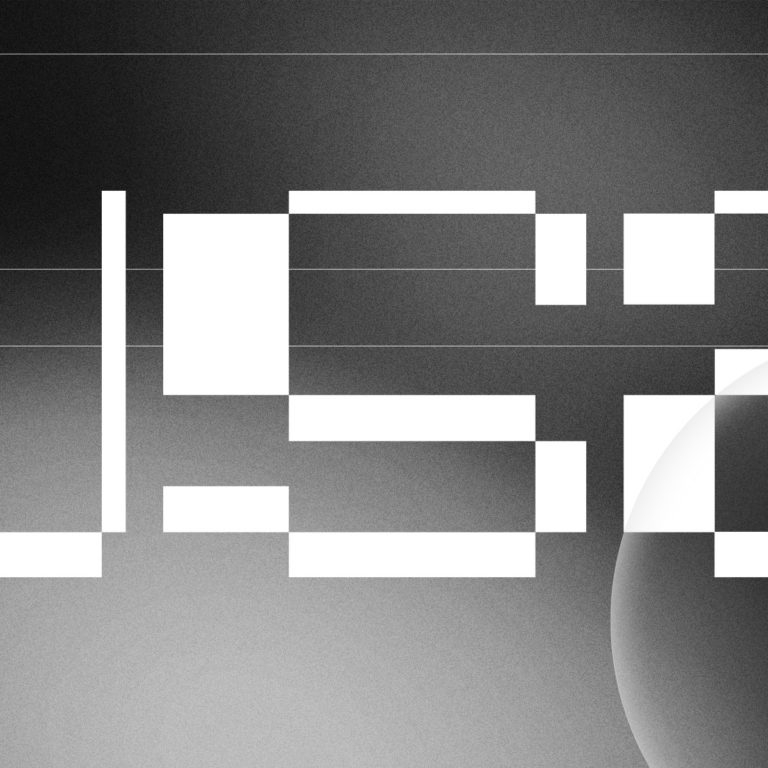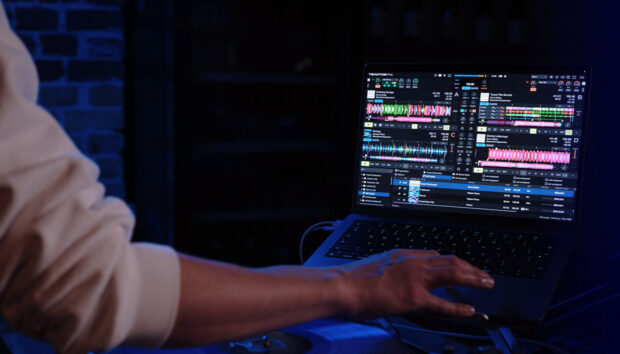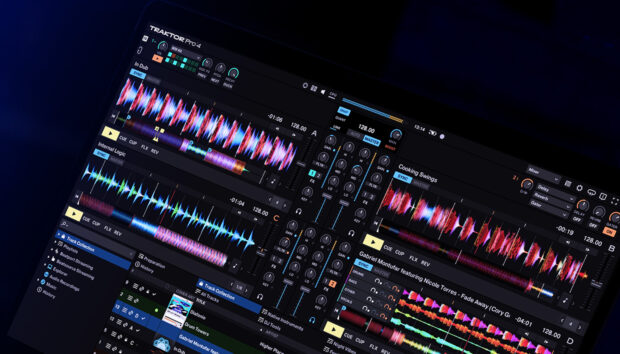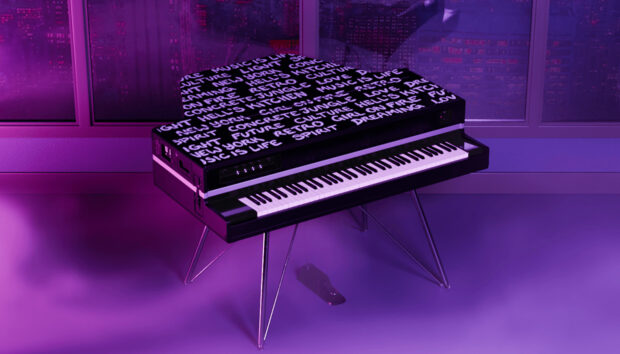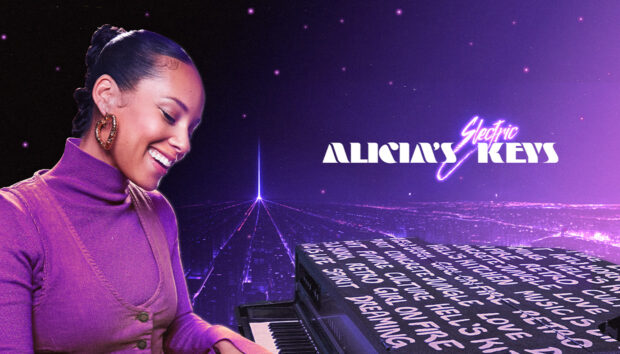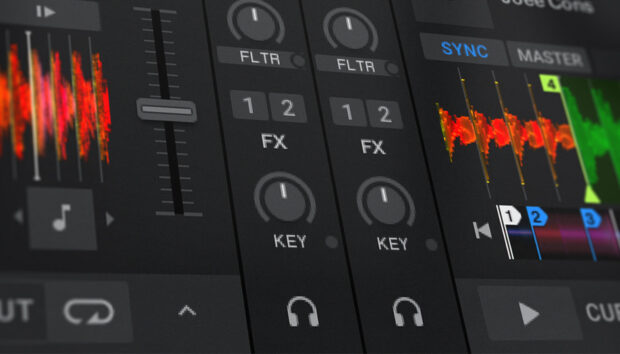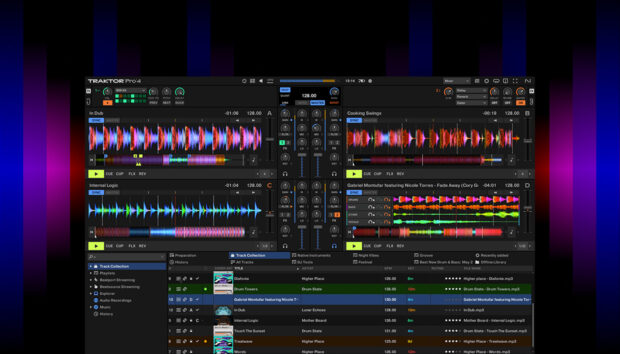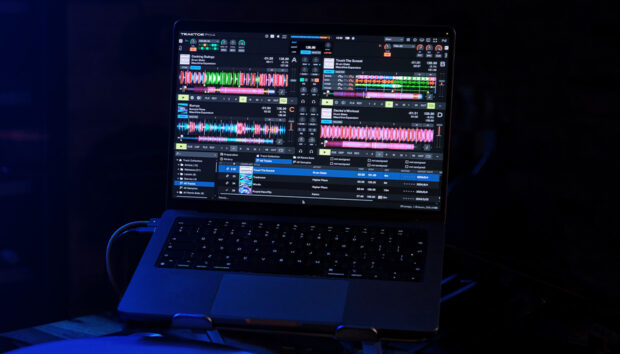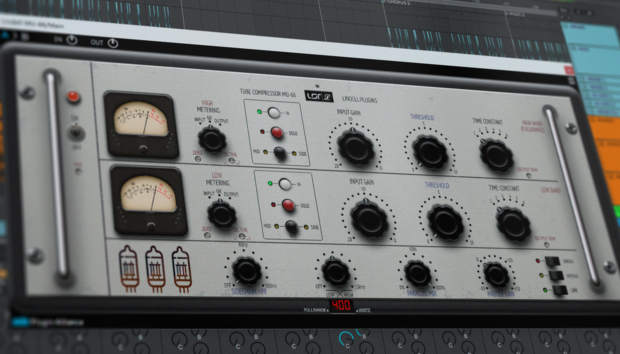Over the last 20 years, TRAKTOR has been an essential pillar of the way DJs present their musical ideas in live performances. In fact, someone learning how to DJ today might not be aware of how many crucial aspects of the art form were unavailable before the advent of TRAKTOR. On the other hand, some of the greatest artists to ever work a mixer have watched the decades-long journey from analog media to digital tools. It’s absolutely apparent in every musical scene around the world that digital technology has become a pillar of DJing, with TRAKTOR right in the mix. For TRAKTOR’s milestone anniversary, we’re looking at different scenes around the world, and talking to TRAKTOR users who’ve been a part of that transformation.
There’s no exaggeration in saying that DJing as it’s currently practiced was birthed in the US. It would be impossible to document every city’s history and multi-faceted music scene here, and other outlets are better suited to doing so. So here, we’ll talk to a handful of influential and groundbreaking American DJs about how TRAKTOR has shaped their performances, and changed their approach to the artform.
Check out the 20th-anniversary timecode vinyl
Grandmaster Flash
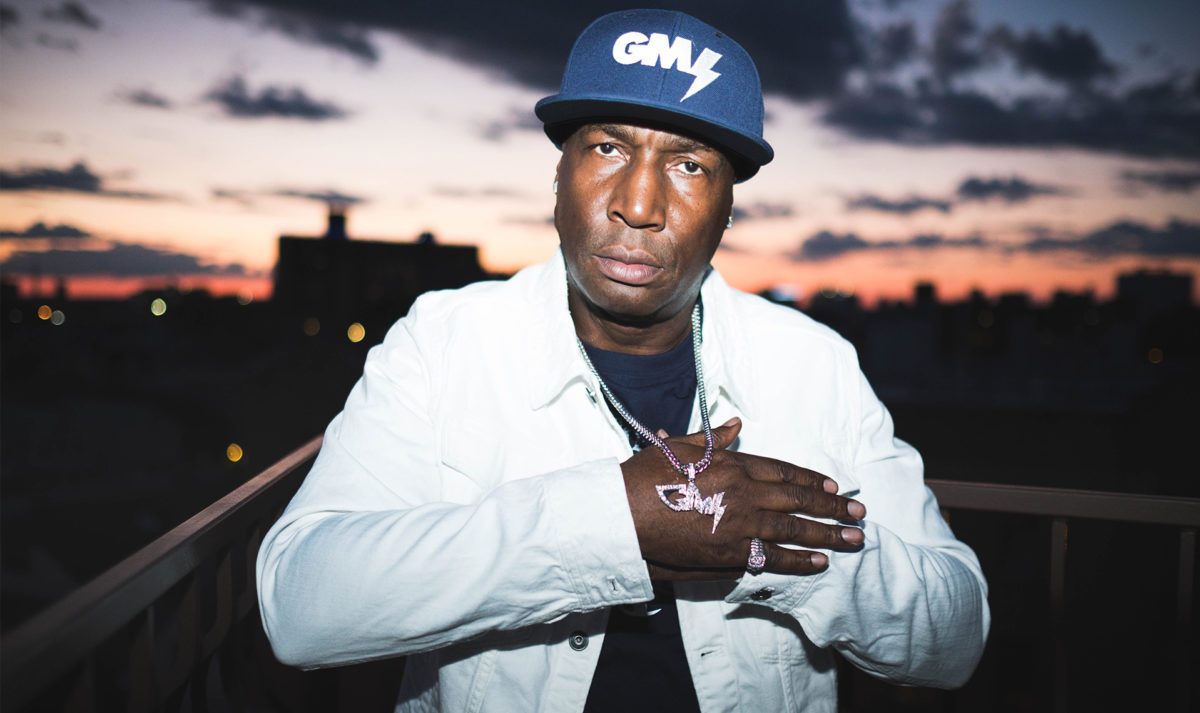
When we talk about founders of the artform, this first DJ has to be top of anyone’s list. Grandmaster Flash is so synonymous with DJing that one could be forgiven for thinking his surname is “and the Wheels of Steel.” He invented the backspin, the beat-juggle, the scratch; he turned the crossfader and the turntable into a musical instrument that has inspired as many beat-heads as Jimi Hendrix has guitarists. In addition to his undeniable laurels, Flash describes himself as a scientist. In his sixth decade of DJing, he still seeks new tools and technologies, new enhancements to how he moves a crowd, and ways to squeeze more ideas into the conduit from his hand on a turntable to the minds of dancers. Here’s a bit of our conversation:
Flash, as the artist who invented so much of what we know as DJing, and the person who invented using the turntable as an instrument, what was your reaction, the first time you saw a TRAKTOR hooked up to turntables?
When I first heard about it, that there was a way to use one piece of vinyl that will control an mp3 through a laptop, I went, “How is that possible?” It took me back to the days of my first recording in the ‘80s. And, you know, when I put the needle down, I’m like, “Oh, crap – what we use will be locked up to two-inch machines, SMPTE timecode. I was like, “Wow, this is really, really clever.”
And what it did for me is, prior to that, I had to use like, four or five guys to carry crates, or to bring selections, and it used to be a real pain in the behind. If a person came up to me and said, “Do you have that song?” I’ll say, “crap, I left that one in the storage room,” you know? So this was quite genius for me.
And mind you, at first I was all arms folded, pissed off, like, “What is this crap?” And then I said, “Wait a minute, this is science, let me take a look at this.” So I looked at all the companies that was doing it, and they appear to be a little complicated for me. And then when I was asked to come to a private showing of it [with NI], and they explained to me how it works, how it loads, how it does that – it was quite simple.
And the reason it has to be simple, with my style of DJing, is that we go to songs very quickly; we put them on, we take them off, we put them on, we take them off, we use a small fragment of a duplicate copy… so I needed something that was really, really quick. So Traktor became my DJ software of choice. It allowed me to put I-don’t-know-how-many hundreds of 1000s of tracks into a hard drive. And since I traveled internationally as a DJ, it was imperative that I have as much musical firepower as possible, whether I’m in Japan or in England or Paris or Germany,It was really, really wonderful for me, and I think the defining factors were, how quick it loads and the effects that it has. It was really quite easy for me to use. So I’ve been using it ever since and I’ve never used any other DJ software.
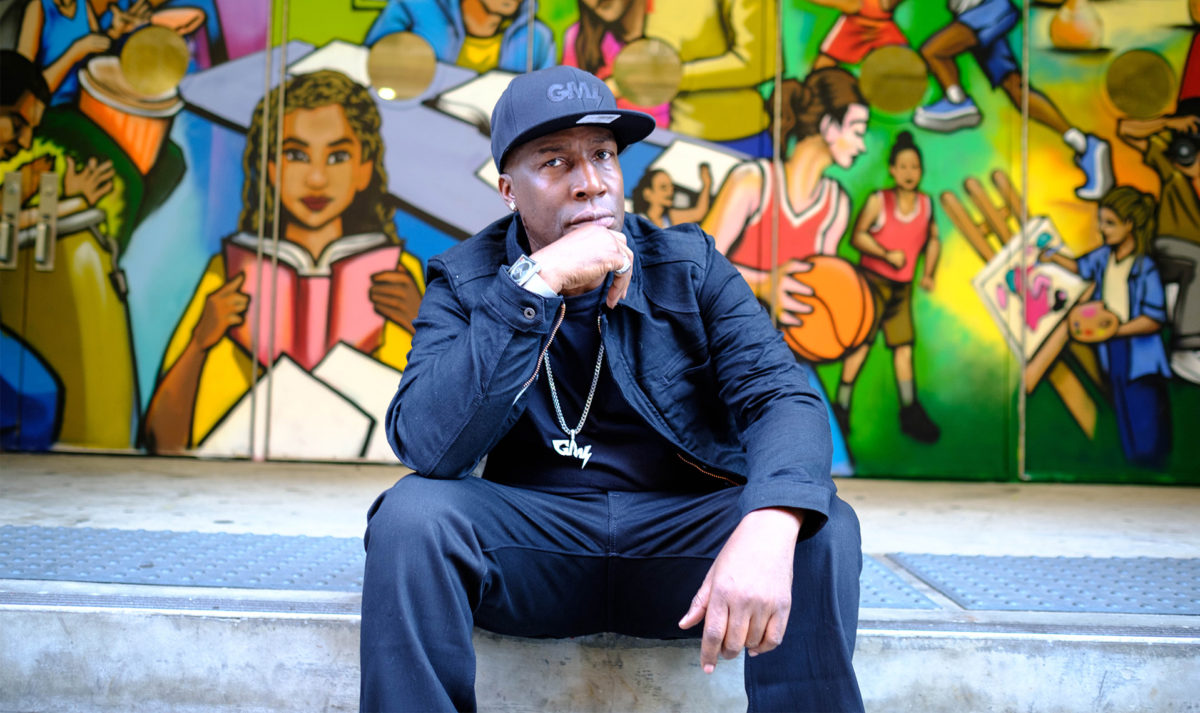
That’s very cool. Can you take me through some of the technical parts about how you have TRAKTOR set up? Are you using multiple decks?
Because of what I stand for in DJ history, I use it quite simply. I may use reverb on certain tracks, I may use the looping feature for a moment, quite simple, you know. What makes Traktor incredible for me is that I need something that is reliable, and is something that gets the songs off and on very quickly, and the sound quality has to be incredible. The visual aspect of it is very, very simple. Because I’m moving really quickly, really quickly. I’m going from Queens to Incredible Bongo Band, coming out of Incredible Bongo band and going into Jay-Z and coming out of Jay-Z, you know, and I’m going to Miles Davis, like I’m all over the place, and people are watching me do this. So for me, Kevin, it’s really, really simple. And although my hands are moving very quickly, the software that I use cannot get hung up, cannot crash, cannot do anything. And people are quite amazed by what it is that I do, but the software allows me to do what I do.
So I can’t tell you in super-duper detail that I use more than two decks because I don’t – I use it very, very simply. And the features on it are impeccable, it gets me in and out of things I need to get out of, and I play in front of anything from 5,000 to 90,000 people. The last thing I want is for something to go wrong. So for me, my setup is very, very simple, but I have a big screen behind me and I have GoPro cameras on me. And they see Traktor, and how I’m going in and out of the songs and parts of songs. So I do lots of interviews, I want people to see how I do what I do. But I have to do it with something that’s extremely reliable.
It makes perfect sense. I mean, you are the originator of those techniques and when people want to see Grandmaster Flash – nobody else can do it like you, nobody did it before you. They want to see you do it, and it’s great that you give them exactly that.
It’s very important, you know, because I used to do it with vinyl, but had to do it with five to seven men traveling with me. So this process means I still can do what I do. I still use vinyl like I do, but now I can travel with two-or-three thousand songs. I can please people here and there and Traktor allows me to do that, makes it really, really simple and tight. I just don’t want to take the chance of trying to come up with some super-duper, 10-turntable, elaborate setup and have something go wrong. And I’ve seen people do it. But me, I just need to jump off Queen pretty quick. And I need to go into Aerosmith pretty quick. I need to get in and get out and get in and get out. And I’ve seen other software, it’s a nightmare, once you got the crowd here on the ceiling, and then something goes wrong. It’s like, “Uhhh…” Traktor has never done that to me. And in all respect to the people that use the CDJs or use, you know, the flash drives and all, that’s all cool. But how I step into the fray, it’s constantly moving in and out in and out in and out. I need something super-duper stable. This is what Traktor is.
One last question: You’re somebody who broke open the doors for the techniques and the technology of DJing. So where would you like to see the art form go now?
That’s a good question. Kev, that’s a really good question. If I had a wish-list, I would love for it to handle video. If I were to say if anything was missing, that would be the component, because I’m an audio visual teacher. So I have a whole other system that links up into Traktor, but if it was built in that would be quite incredible. That’s pretty much it because I’m really simple, man. Simple guy, man. That’s pretty much it. Other than that, it’s stable, you know? I love it. It’s good.
Josh Wink
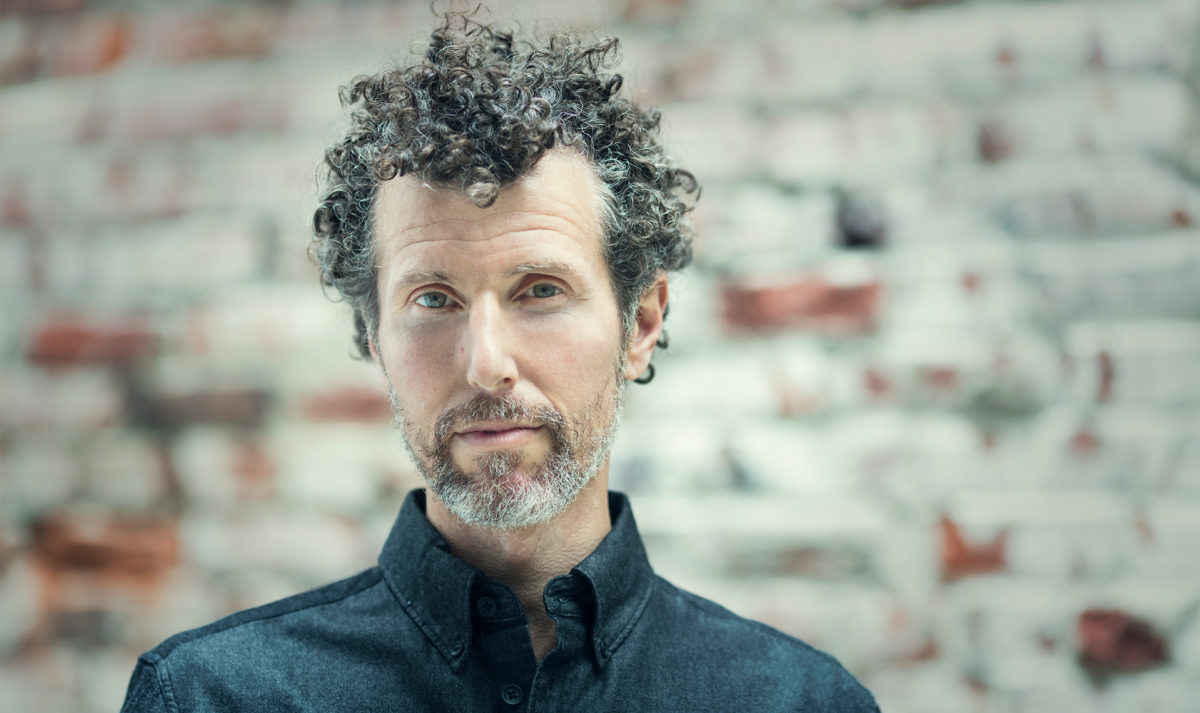
DJs aren’t just record players; in many ways each DJ fills a role that expresses a part of who they are. For legendary Philadelphia selector Josh Wink, the job calls him to function as a “therapist” to dance floor residents. The music becomes a way to build a narrative that takes them “away from their issues” and into, one might say, a Higher State of Consciousness. Wink has traveled the world for decades now, gracing clubs of every stripe and occupying every corner. With a shaman-esque calm, he draws dancers through psychedelic and transcendent deep mixes of heartfelt selections. His history from the early sparks of Philly’s hip hop pioneers to the explosive spread of deep house and techno have made him a beloved member of the pantheon of heroes, and someone welcome at every club in the world. Josh chatted with us about how he came to use TRAKTOR and where he sees DJ culture going next.
Josh, you are known for your extraordinary versatility and longevity both as a DJ and as a producer. When it comes to your DJ sets, what are the key skills and assets that give you the ability to stay so fluid?
I choose to believe that it’s being true to what I feel. And DJing from my knowledge and history of music. Not going necessarily by trends, but by going for what rings true to me. Due to my – I don’t want to say intuition – but my integrity to myself and what I chose to get into this profession for. So, I listen to music, and it affects me more as a feeling than a thought. And when I DJ, I DJ through feelings and being spontaneous with these feelings that arise during my performances. Or my radio shows, for example, because I’ve been doing a radio show on the internet or on satellite radio Sirius for 12 years now, my Profound Sound show. I liked what you said in your preface with the question about having longevity. I would love to say it’s based on my integrity to myself and my history of being involved in music since I was 13 years old as a mobile DJ. It has a long history of being kind to me, in terms of people enjoying what I select and play when I perform out and on the radio.
Your sets often incorporate really long, deep mixes where tracks overlap for extended periods, and listeners might lose track of where one track ends, and the next begins. Is that something that’s always been a feature of your DJing, regardless of what tools you’re using, or what medium you’re using to DJ?
I don’t want to speak for other people or what they believe in. But one aspect of what a DJ can do, and what I try and strive to do, is to take a listener on some sort of a journey. I like to say sometimes that when I DJ, I act as a musical therapist, taking people away from their issues and their problems so they can escape on the dance floor – or wherever they hear my sets. And one of the ways I do this is by trying to use the tools that enable me to present that the best I can.
One of the ways of doing that is by segueing in between music. It doesn’t have to be the same tempo. It can be done through effects, and processing. But when I grew up, learning how to beat mix and DJ when I was a teenager, it was all about blending and transitioning smoothly as long as I could. In the beginning, there wasn’t the use of looping of any sorts except for having a 12-inch record that would be able to give you a mix in and a mix out done by the producers of that record. Or you can use two copies like hip hop DJs used to do.
So fast forward 20 years, and you have looping tools such as the Cycloops sampler, which would allow you to sample a bit of the music from the mixer into a sampler that would be able to sample two measures, four measures, eight measures, or 16 measures of the songs that will help create an easier segue in between the songs. Then, fast forward 20 years again and you also have the looping features which are available in digital mediums, such as the pioneer CD players, or the fun ability to be able to do that in TRAKTOR on four decks. So those are some of the tools that I use to help blend and make my skills a little bit more easeful and smooth.
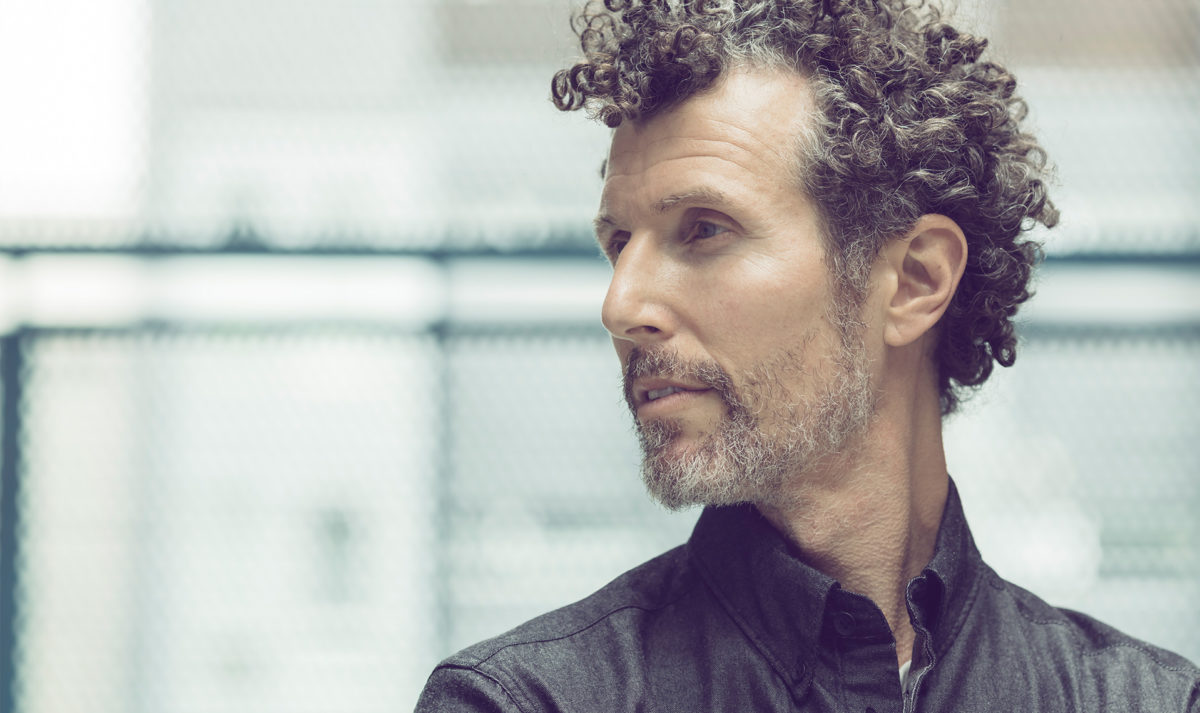
Actually, I wanted to ask you about what you were using before you started using TRAKTOR, and can you tell us when you first began to use digital files for your DJ sets?
Well, I first started out using cassettes. I would make my own edits of things by using cassette tapes and recording bits and pieces again and again and again, elongating. But that was just experimenting at home when I was young. When I started DJing, I was involved in and inspired by the turntablism of the DJs out of Philadelphia – going and seeing Jazzy Jeff and Cash Money and a lot of early Philly DJs that were using these breakbeats as mentioned before, to elongate breaks and use turntables and turntablism, and creating a craft beyond what I knew was possible.
So first, I started with tapes, and then I went to vinyl. And then I started using what was called Final Scratch at the time with the BeOS operating system, presented to me by Richie Hawtin and John Acquaviva. That was the first thing that would use digital files through a computer, and timecode records to be able to manipulate and control digital files on my computer with an interface hooked up to the mixer. And then I started using CDs. And I would put my vinyl music on CD and I would use CD players. So I went from vinyl, to CDs, to Final Scratch, then back to CDs.
And then I started using TRAKTOR in maybe 2007, 2008, 2009. So I was a firm believer in being able to use a lot of different kinds of tools that were available and seeing which ones work the best for me. And then TRAKTOR came along with a lot more bells and whistles and combined the aspect of music production tools in DJing. But I also still wanted to travel light and not be burdened by a lot of gear that I would have to hold and use. And I was familiar with Native Instruments too, via the software that they were producing for musical composition. So I liked the fact that they were in tune, and that they employed and hired a whole bunch of people who knew about DJing and also knew about music production, especially house and techno. I felt like they were clued in and keyed up with what I was going through.
I began to use TRAKTOR a lot more and I was also able to offer my views and opinions and ideas to help improve the software and be part of the beta team, and just be part of this really cool community that would help shape digital DJing responsibly.
As somebody who is not only DJing, but also producing music, as well as releasing it through your label, where do you see dance music culture going? More importantly, where do you see DJing going in terms of technology and the art form?
It really all stems from what the DJ or producer really wants to do, I can only speak on behalf of myself. I love being able to travel, doing the craft that I do as an artist and a DJ. I like being able to perform as an artist that doesn’t perform live, but happens to DJ. And certain tools I’ve used do help solidify that and make my job easier and more consistent. I love the reliance on technology, but I also dislike the reliance on technology. I love to be able to have all my music available somewhere in the cloud, and then I can access it easily wherever I am instead of being reliant on hard drives. But then I’m still reliant on bandwidth and internet capabilities and stuff like that. I like the fact that some of my colleagues who are artists performing as DJs take their mini studios and incorporate it with their TRAKTOR setup, using drum machines, using samplers and delay pedals and reverb pedals and mixers that allow them to be as creative as possible. And I love that. For me, it’s about ease. And I’d love to be able to travel so my back doesn’t go out [laughs].
I mean, it’s kind of neat where things are going, And it’s come a long way from 22 years ago when I first started using digital technology to be able to manipulate and control digital files from my computer. But still, some things go wrong when using digital technology. And I look forward to the future of it being more streamlined and more focused in a setup that’s more consistent. The way things are going technologically, especially with Native Instruments, I find that there’s been a lot more consistency and less crashing and problems with operating systems and handshakes between technologies.
Uffie
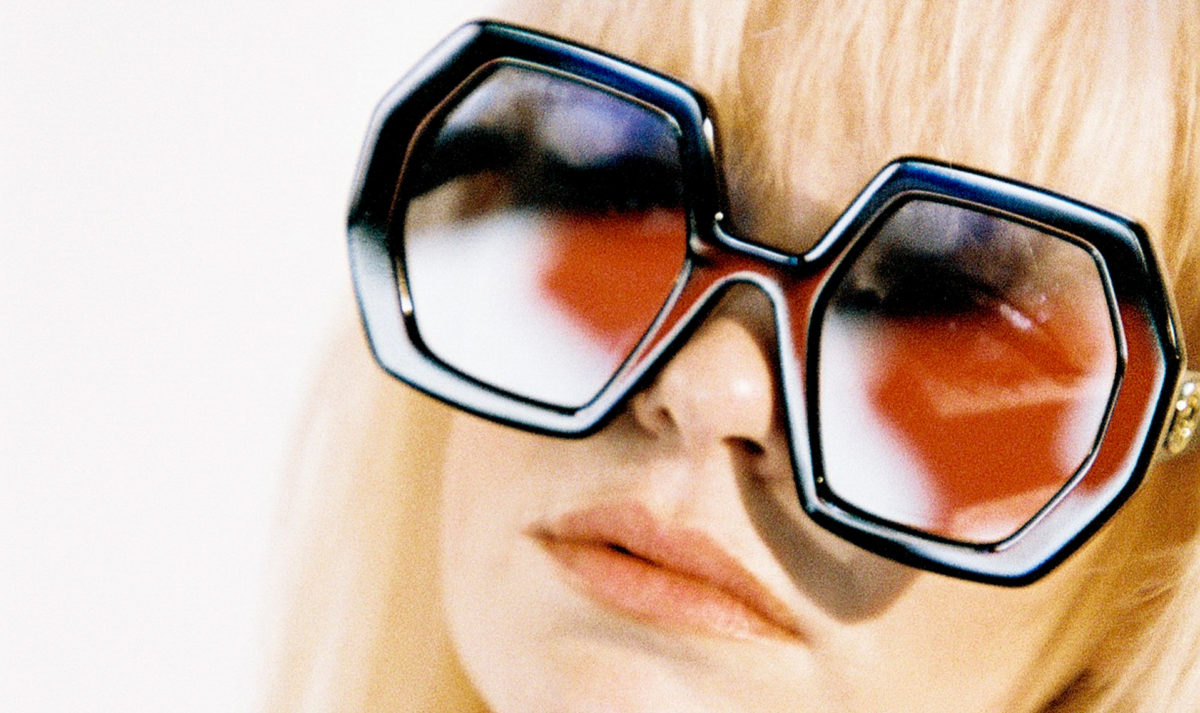
Some people come to DJing as their primary form of expression, whereas others find it as a way to expand their established musical creativity. The latter might describe how songwriter and performer Uffie sees DJing. She stormed into listeners consciousness in 2006 with “Pop the Glock” – an anthem for a nascent scene that would launch names like Ed Banger, Diplo, Justice and more. In the years since her star first ascended, Uffie has honed her considerable songwriting prowess, working in the studio with Pharrell Williams, Pink, Crystal Castles, Mr. Oizo, Charli XCX, and many others. She’s also come to be known as a skillful and considered DJ. As someone who was never tied to previous formats, she’s embraced TRAKTOR as a way to organize her sets and selections. She spoke with us about her journey from LA.
As someone who juggles the roles of songwriter, vocalist and DJ, do you find sources of inspiration in the different disciplines? (i.e. does songwriting influence your DJing, singing influence your songwriting, etc?)
No, it’s quite the opposite. I find songwriting to be very personal, especially while writing for my own artist project. It’s my view that comes mainly from my experiences. While DJing is curated with my favorite songs, the music is sonics from other artists’ views and vibes who I love and admire. It’s a different kind of freedom.
Your career took off during a particularly wild time for DJing. Can you tell us about how you started DJing, and how it has evolved for you?
Although I started as a singer, coming up on a dance label (Ed Banger Records) I was constantly surrounded by DJs and playing the same parties. It was a specifically fun and incredible time for music, genre-defying on the dance floor. Starting to DJ felt like a natural step. I love a new challenge, and DJing is something I feel like I am endlessly growing and learning from. It’s also really fun to curate an hour of someone’s night and vibe.
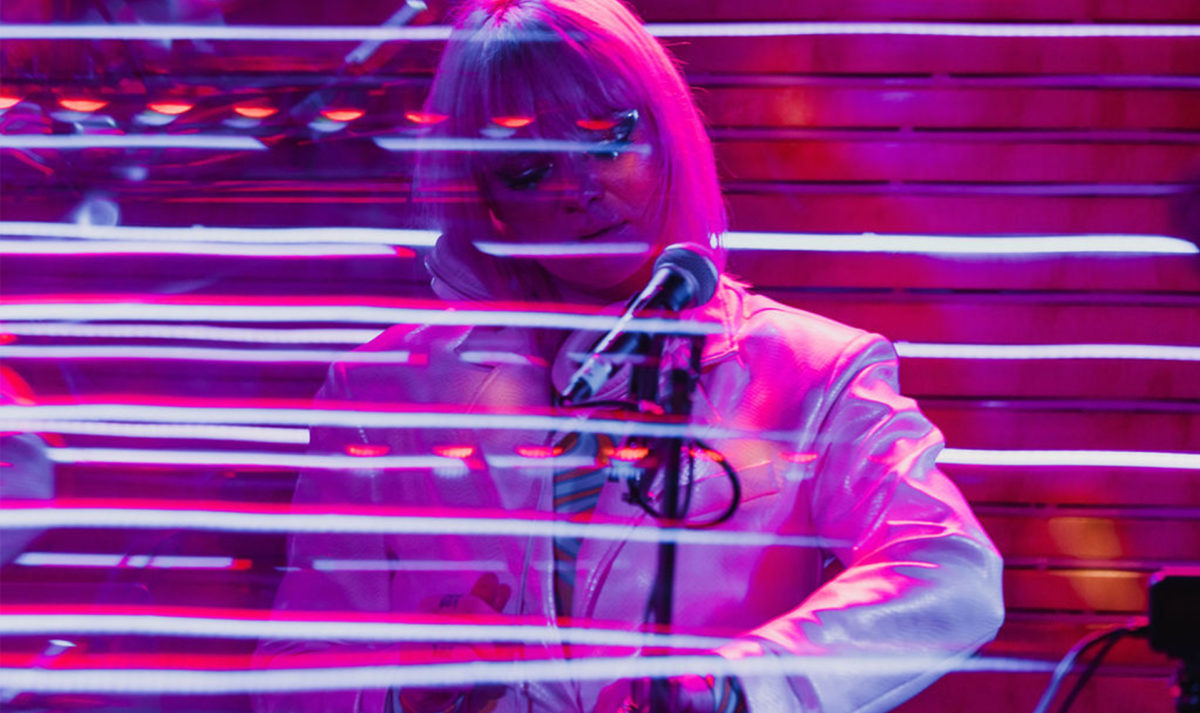
Do digital DJing tools like TRAKTOR help you achieve certain creative goals that other options would limit? Are there aspects of the existing DJ technology that still feel limited, or that you’d like to expand?
Traktor’s integrations with various music libraries is awesome, and I love the new Beatport Link feature. It allows me to have a wide selection of songs at my fingertips.
What are some of the tools you use most often in your DJ sets, and how do you use them? Can you tell us a bit about your setup?
I love the signposts – how easy it is to know the key, etc when making transitions. The color change while changing effects is also great to help you keep tabs. It’s incredibly easy to quickly change the view to focus on what you need to… whether creating a loop or browsing for your next track. While using TRAKTOR, I like to plug into my S4 controller. Unlike CDJs, I can bring my portable decks anywhere and practice or prepare on the go… which is a big bonus while touring!
Tell us about your new album Sunshine Factory, and how you made it. What do you hope people will hear in it?
Sunshine Factory is the most organic record I’ve ever made… it kind of birthed itself in a way. I’d made a song, “Cool,” that I really loved right before the pandemic hit. Suddenly no one had to (or could) be anywhere, and there was this different creative energy in the air with that. We were isolated, and craving freedom, concrete sweating walls, but also the forest. I had the opportunity to hole up with my friend Lokoy in a tiny fishing village outside of Lisbon, Portugal for two weeks… and the soul of the record was born. I hit Chaz (Toro Y Moi) to feature on one of the songs, and two trips to Oakland later he had co-produced the rest of the record and helped me bring it to life. It’s a journey through a fantasy night-into-morning I had been dreaming of in isolation and goes through a live instrument, punk-filled start, peaking with dance tracks, and ending in a vulnerable, more gentle haze.
Danny Tenaglia
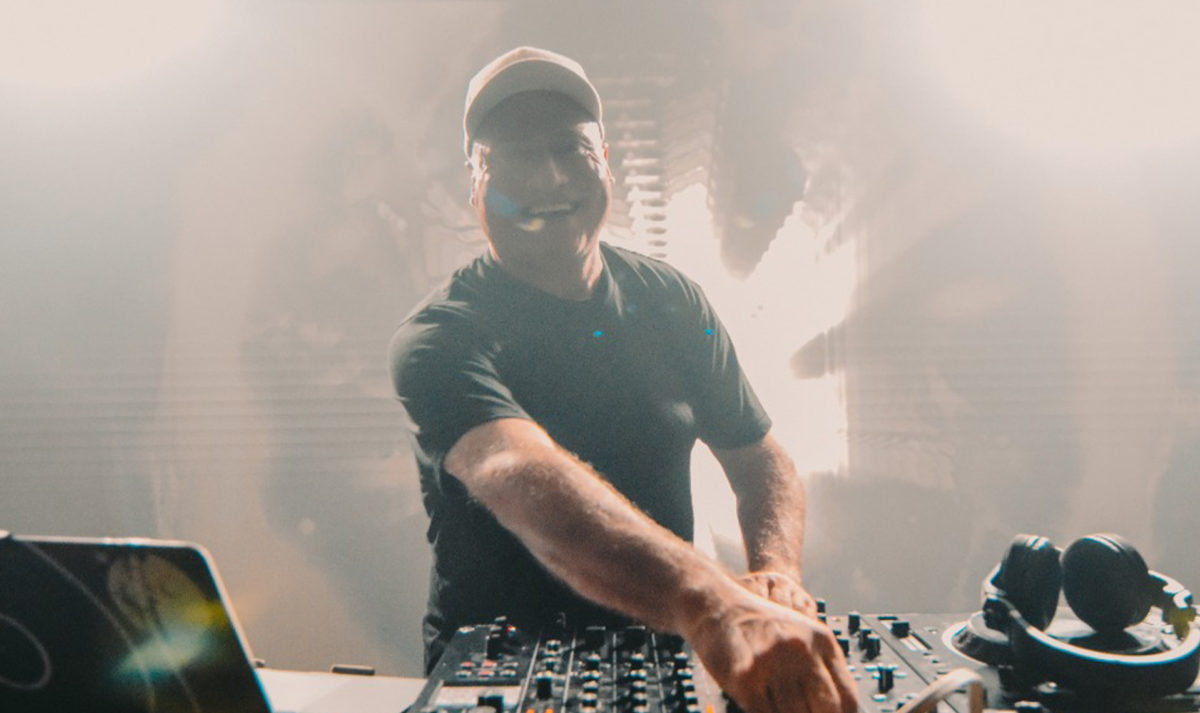
Since we started this entry about the story of DJing in America with Flash, an artist forged in NYC in the late 70s, we will close it out very another whose roots are in the very same moments on those same streets – Danny Tenaglia. If there is a Cult of the DJ, then one of the most devout religions is the congregation of worshippers in his thrall. Tenaglia has a history that would make any aspiring DJs dream journal look flimsy. He’s a Grammy-nominated producer and DJ whose awards and discography only outnumber the decades he’s been an influential conductor of the movement of bodies. His sets embody the inspiration he routinely references: the genre-free blends of unbounded pioneer DJ Larry Levan at the Paradise Garage.
Danny took time out of a busy tour schedule to tell us about how his DJing has evolved.
Danny, you’re a DJ who is known for the breadth and depth of your musical knowledge, which always comes through in your sets. How does playing digital files factor into the enormous number of choices you have of what to play?
Thanks, I guess I have been around the block a few times since I got all caught up in this madness way back in the early 70’s. Although I wish I could say that my entire record collection has been digitized, that would take several years to get from A-Z with listening to them all, and then deciding which ones are still worthy of the time spent on the process. As far as many other tracks and songs go, I have uploaded a few thousand older tracks that I still feel have a place in my box, depending on the event, but most importantly, anything that did not lock to the grid had to first be warped in Ableton Live in order for me to sync them with other tracks, loops etc. Most of them were also treated with a new EQ to make them sound more compatible if I’m weaving them with newer tracks, as today’s technology in dance music is so much louder, punchier, crisper and so on.
As a steadfast influential presence in club culture, how have you viewed the changes in technology and styles? Has your philosophy and creative approach changed with the tools, or do you see DJing similar to how it was when you started?
I moved from strictly playing vinyl records, for over 2 decades, to maybe just a reel to reel tape machine and a cassette deck in the booth, then on to CDJs during my Twilo residency in 1996, then the digital drives and ultimately to TRAKTOR. I was noticing the changes that were happening to dance music by going from mostly all live playing bands, musicians and even orchestras recording onto 24 or 48 track analog 2-inch tapes then bounced down to 3/4 inch tape that would be sent to mastering labs.
What I noticed was, having been a young kid in the 60’s and 70’s there was nothing much happening with new instruments until guys like Stevie Wonder, Billy Preston, Pink Floyd etc, started to experiment and use synths like the Moog, mainly, on the LP’s. That was the first thing that raised my awareness with a wow-like factor. Then before you know it things started changing so rapidly and by the 1980’s most of the new dance music coming out was all electronic synths and drum machines.
But the real first “wow” for me as a young DJ was in 1975 when I heard and bought Kraftwerk’s LP with Trans Europe Express on it. So much quickly followed after it with groups like Yello, Depeche Mode, etc. But it truly was Kraftwerk, Giorgio Moroder and Yello that had the biggest impact on me as a DJ who was mostly a deep house and Paradise Garage addict, but change was inevitable. Especially when Larry Levan embraced Kraftwerk’s “Numbers” LP and played several tracks regularly. That was (once again) life changing in many ways to hear that on that sound system to what was mostly a soulful and predominantly gay black nightclub. The kids ate it up. We all did.
So basically what I am adding here is how I noticed a massive electronic and digital change in dance music and I embraced it fully, while always holding my love for the roots of it all in a very special place until this day. And somehow I guess this is similar to a musician who learned how to master an instrument with years of training and practice, and here I am going from “Just Records” to “Just a Laptop!” Who could have ever predicted this technology? No one! So it’s hard for me to even imagine where things might move into in the next 10-20-30 years!?
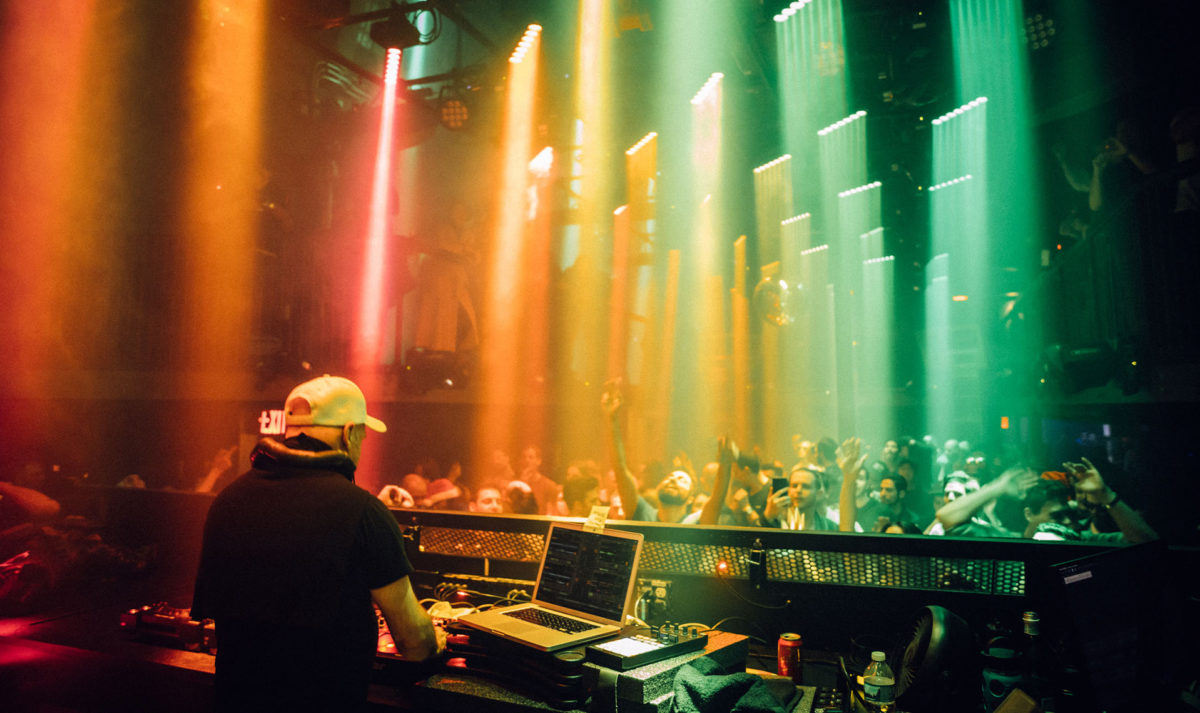
Your sets can sometimes go for many hours, spanning genres and eras from the classics to brand new tracks. How is the preparation for these sets different from others, and is it different with TRAKTOR than it was before?
It’s extremely time-consuming and always worth the effort. However, there are also many days and hours of discouragement from all the time spent typing in all the correct track information, title, artist, comments, etc, in my i-Tunes, then I make a whole separate playlist in Traktor according to what style or genre I might consider it to be which is usually broken down something like this: Swing House, Deep House, Tech House, Techno, Tribal/Afro, Prog/Melodic, Vocals, Newest Bombs, Classic Tracks, DT Versions and Edits, Loops, Acapellas, FX.
Then before every gig, I go through the newest promos and see which I want to add to these continually changing playlists. I basically name my playlist after each gig, city or country to have the most impact on my memory as I don’t like to delete older playlist and use them and the TRAKTOR archives as a good point of reference at times.
What do you think of the current state of DJing? What are you most excited about in the near future and beyond?
My, my, my….. Let me first say how grateful and thankful I am that people still appreciate me as well as still getting new offers weekly. The Lord has blessed me with all that I have witnessed and by having learned from the best throughout so many amazing and historical nightclubs, mostly in Manhattan since 1976, starting at Dave Mancuso’s Loft. But also by now having played in 45 countries and quite often playing alongside some of the world’s greatest DJs, I can say we never stop learning.
However, I have to say that it now makes me sad knowing what it will take for new and upcoming DJs to really make it with so many odds against them. Having a talent to select music and tracks to make a crowd dance and feel good for a few hours over and over again is without a doubt a very special gift. But these days it takes so much to get noticed and making a mixed set on Soundcloud, etc, is simply not enough.
Now DJs are forced to learn how to use studio gear, or hire expensive studio engineers and rent rooms to make a track that most likely will not sell much – just to get attention that might last 2-3 weeks on a chart. It’s discouraging. But by doing this is the only way another DJ or DJ Agency is going to discover you and help you to get on line-ups and work your way up. But not everyone has the studio gift or maybe not even the desire, but simply wants to only be a DJ. Well, it’s definitely a much bigger struggle than what I had to deal with since everything has changed. There are thousands and thousands of DJs, loads of competition, and then these days we have to play the Social Media Game so some promoters can judge us by how many followers we have.








